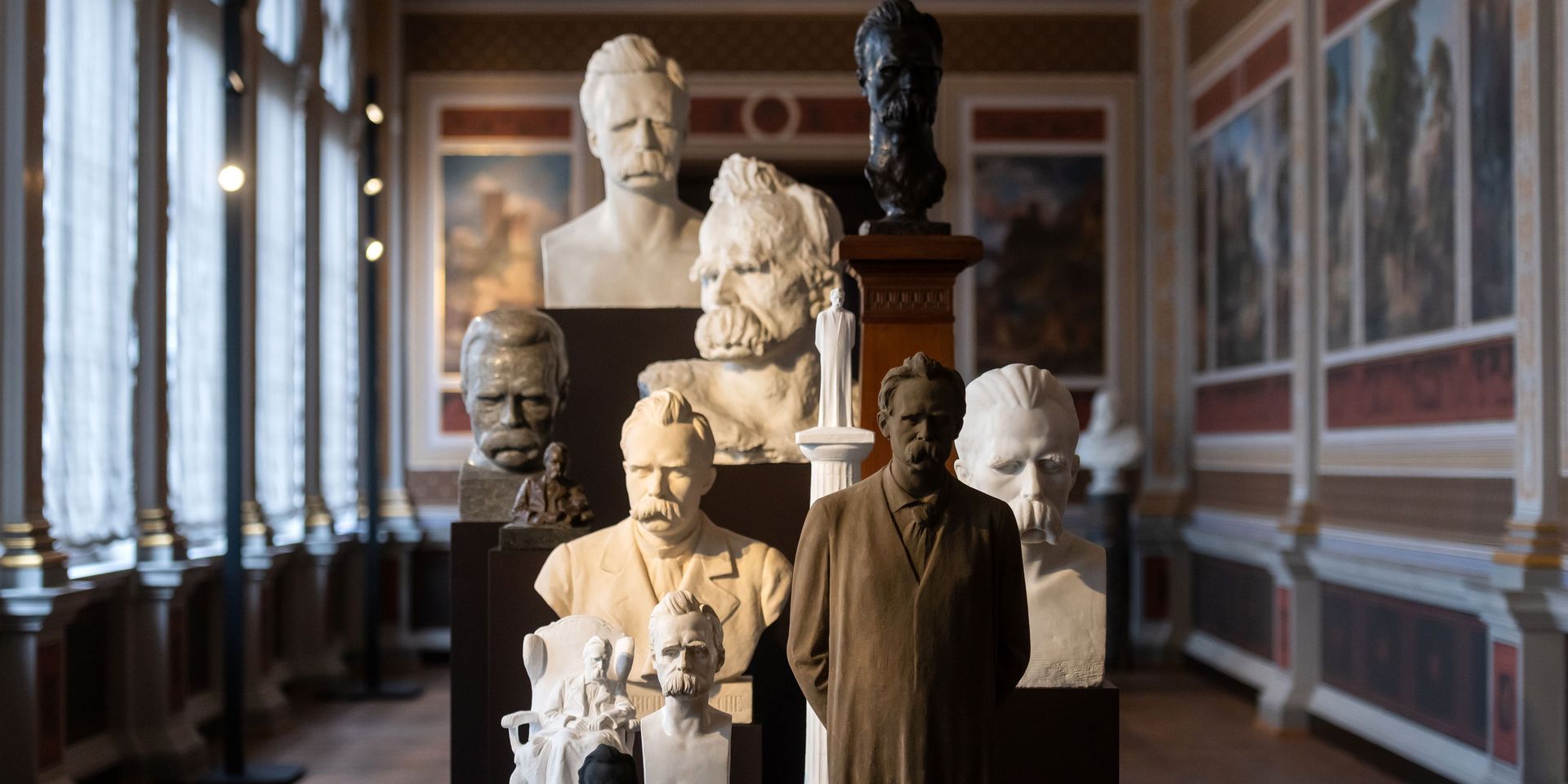Projects of the Klassik Stiftung Weimar are funded by the European Regional Development Fund (ERDF) and the Free State of Thuringia, represented by the State Chancellery of Thuringia, Department of Culture and the Arts.


The new permanent exhibition presents works by the Weimar Painting School, avant-garde painters sponsored by Harry Graf Kessler, from Claude Monet to Max Beckmann, as well as numerous exhibits by Henry van de Veldes.
The new exhibition “Van de Velde, Nietzsche and Modernism around 1900” will present outstanding international works of realism, impressionism and Jugendstil which reflect a contradictory, but radiant era that continues to influence our world today. In the context of the pioneering philosopher and cult figure Friedrich Nietzsche, the exhibition presents important works of early modernism. These include pieces by the Weimar Painting School and the avant-garde painters supported by Harry Graf Kessler, from Claude Monet to Max Beckmann. Numerous works highlighting the functional, elegant design of Henry van de Velde will also on be display.
The exhibition and museum-pedagogical activities offered in the workshop are sponsored by the European Regional Development Fund (ERDF) and the Free State of Thuringia represented by the Thuringian State Chancellery, Department of Culture and Art.

Organizers